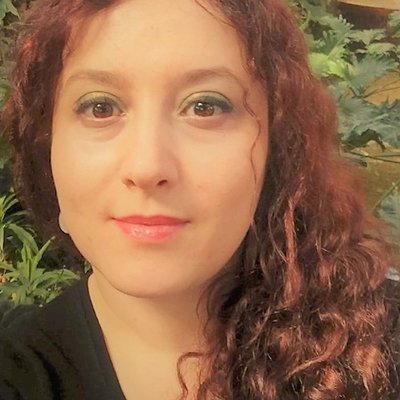On the twelfth anniversary of the assassination of Armenian journalist Hrant Dink in Turkey, deputies from the ruling Justice and Development Party (AKP) and Nationalist Movement Party (MHP) rejected in January a parliamentary motion from a deputy of the opposition Peoples’ Democratic Party (HDP) that aimed to shed light on the murder.
The motion was submitted to parliament by HDP deputy Garo Paylon, who is also of Armenian origin.
The editor-in-chief of the bilingual Armenian-Turkish newspaper Agos, Dink was shot dead by a Turkish nationalist in broad daylight outside his office in Istanbul on January 19, 2007. He was 52 years old.
The trial on Dink’s murder is still in progress. The last hearing was held on December 21. Out of the 85 defendants—including police, intelligence, and gendarmerie officials—only four remain in jail pending trial. The next hearing will be held on March 12, 13, and 14.
Due to his statements on Armenian identity and the 1915 Armenian genocide, Dink had received many death threats from Turkish nationalists, was prosecuted several times, and was attacked both verbally and physically before his murder.
Dink was not the first journalist murdered in Turkey. The Platform of Solidarity with Arrested Journalists (TGDP) reported that between 1909 and 2012—a period of more than a century—112 journalists and writers were murdered in the country.
The first of them, Hasan Fehmi, was murdered in 1909 for criticizing the Ottoman Committee of Union and Progress government, which was responsible for the 1915 Armenian genocide.
Turkey has also exported its tradition of committing deadly violence against dissident journalists to Cyprus, which it has been illegally occupying since 1974.
The Committee to Protect Journalists (CPJ) reports that in 1996,
Kutlu Adalı, a political columnist with the leftist newspaper Yeni Düzen in Turkish-occupied Northern Cyprus, was fatally shot in front of his home. He had written critically about the Northern Cypriot government’s immigration policies enabling Turkish nationals to live and work in Cyprus. A little-known group called the Turkish Revenge Brigade claimed responsibility for his assassination, but he had also received threats for a recent investigative report on an antiquities heist said to involve a Turkish general.
Reporters critical of Turkey’s violent actions on the island were targeted even before the Turkish military invasion. For instance, Ayhan Hikmet and Ahmet Gürkan, journalists for the Cypriot Cumhuriyet newspaper, were murdered in 1962 by the Turkish paramilitary group, Turkish Resistance Organization (TMT), for supporting peaceful coexistence and closer cooperation with Greek Cypriots. Hikmet was shot in his house, and Gürkan was found dead in his car. Following their murders Cumhuriyet ceased publication.
To this day, the perpetrators of all these and other such crimes have not been brought to justice.
In 2010, Hikmet’s daughter, Hıfsiye Hikmet, said in an interview that “behind the murder is Rauf Denktaş,” the first “president” of the Turkish-occupied territories in northern Cyprus. She added, “But no one can say this because they are scared.”
The investigation file of her father’s murder has “disappeared,” Hikmet said. She and her sibling have looked for it everywhere, including the records of the ministry of justice and courts in the occupied territories, but it was nowhere to be found. “Someone must have annihilated the documents,” she said.
The ruling Justice and Development Party came to power in 2002, but Turkey jailed, violated, and murdered many critical journalists long before. The root cause of all this systematic abuse seems to be rooted in Islamic theology, which cannot accommodate a fully democratic political system in which all people are treated as equals. In fact, Islamic law is inherently intolerant toward non-Muslims and is opposed to the free exchange of ideas: those who leave or criticize Islam, for instance, can be executed.
And although Turkey is not ruled by sharia law, the country’s treatment of dissidents and non-Muslims has always been largely shaped by Islamic values. A theology that criminalizes, and even sanctions the murder of apostates or “blasphemers,” logically creates an oppressive culture that normalizes abuse of all types of dissidents—be it religious dissent or otherwise.
Being the only major governmental religious institution in the country, the Directorate of Religious Affairs, or Diyanet, for instance, has been the symbol of Islamic supremacism since its founding in 1924. All other non-Muslim religions or philosophies have been systematically oppressed. Jews, Christians, and other non-Muslims in Turkey have never had equal standing with Muslims and have been subject to pogroms and even genocide. Many dissident journalists have been arrested and exposed to mistreatment or even torture.
Another reason for the persecution of dissident journalists appears to be that Islamic supremacists never face up to their own history and apologize for their crimes. They either deny those crimes ever occurred or they assert that whatever happened was the fault of the kafirs (infidels). The state authorities in Turkey seem to have too much to hide about their actions in and outside of the country. And this makes Turkey one of the riskiest places to be a dissident journalist.
Photo Credit: Hrant Dink, via Armenians Today.







 Sponsor a student for Christianity & National Security 2024
Sponsor a student for Christianity & National Security 2024